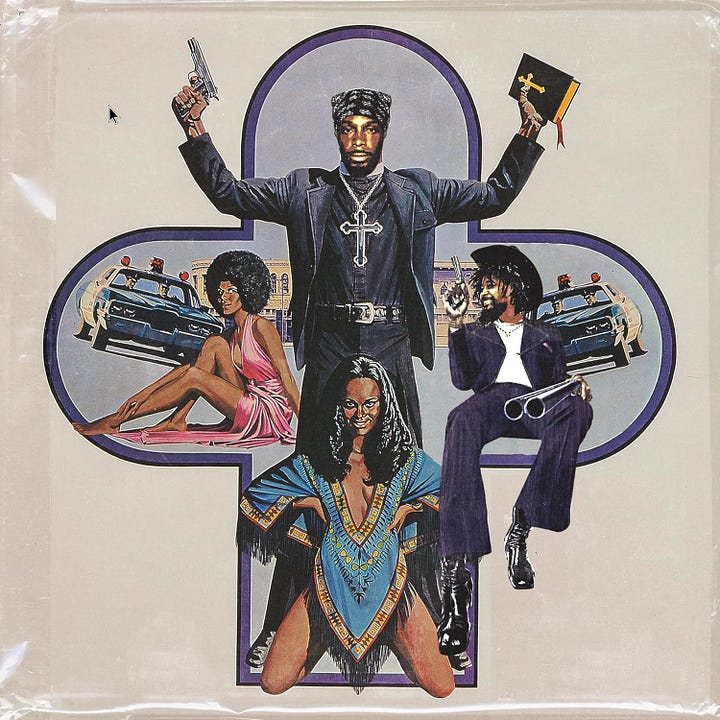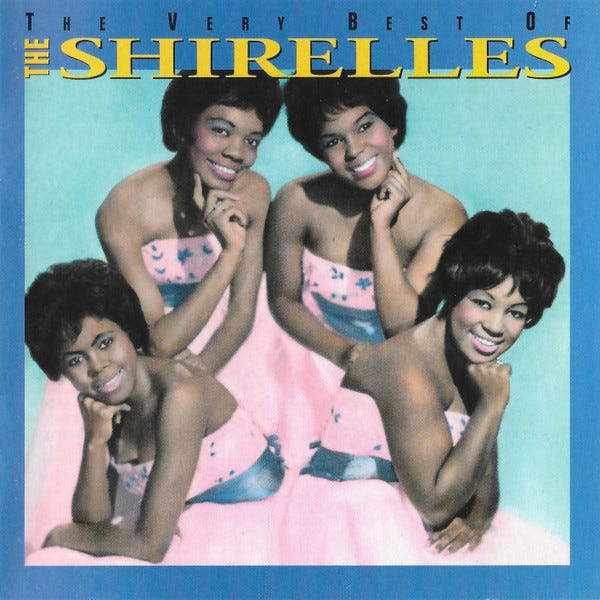Xgau Sez: March, 2024
Hip-hop lyricism, the year of the woman circa 2018, very best vs. all-time greatest, Underoath vs. depression, in praise of Kim Stanley Robinson and Swedish socialism, remembering David Schweitzer.


Hi Robert: In your 2023 Dean’s List piece you name a predominance of older artists as the year’s “significant anomaly.” What interests me the most, however, is the relative lack of black music—hip hop in particular. Sure there’s some, but ignoring the various African releases compiling decades old music, you can almost count black artists on two hands. I seem to recall you having voiced reservations about current tendencies within hip hop, so my question: Assuming you agree with my analysis, do you think the lack of hip hop on the list is just a coincidence (just a lackluster year in that regard), or is there a deeper meaning to it? Just a curious observation: Your highest ranked hip-hop record of the year (by black artists) is Scaring the Hoes, and it’s among other things a frontal attack on the hip hop scene of the current moment. Danny Brown: “Niggas don’t rap no more they just sell clothes/So I should probably quit and start a line of bathrobes.” — Adam, Denmark
That’s a fair question and I haven’t come close to figuring out why it pertains. I expect it has something to do with trap as an approach to rhythm that I don’t understand, don’t cotton to, or don’t like at all, though I’d begin by venturing that it’s not hooky enough in the pop sense, which is something I’ve always valued in hip-hop myself. The thing about Danny Brown is that he definitely has ambitions as a lyricist, and except for a few of what I’ll call the New York intellectuals—Wiki, say, or especially second-generation Marxist Billy Woods—that’s becoming rarer near as I can tell.
While reading the lists of recent years’ Grammy winners, I found your review of Kacey Musgraves’s album The Golden Hour, and I was really intrigued by the passage where you refer to that year (I presume 2018) as “the rock era’s biggest yet quietest year of the woman to date.” Could you elaborate on that? Also, do you still stand by that assessment after five years? — Gaetano, Siena, Italy
Looking back on 2018’s Dean’s List, I find 16 women in the top 30: Noname, Bettye LaVette, Pistol Annies, Tierra Whack, Cardi D, the Paranoid Style featuring Elizabeth Nelson, Maria Muldaur, Kah-Lo, Wussy featuring Lisa Walker, Janelle Monae, Elza Soares, Amy Rigby, Amanda Shires, tUnE-yArDs, Hinds, and the transgender Sophie. So without doing any handstands, that looks to me as if it qualifies as a yes—there just weren’t that many women getting respect back then. So 16 in the top 30 deserved some sort of plaudit.
Not a question but a comment regarding the Very Best of the Shirelles. I own their 25 All Time Greatest Hits on the Varese Sarabande label, 1999. The fidelity is great. It contains “The Things I Want To Hear” and “It’s Love That Really Counts” which was omitted from Very Best Of; it also has “Boys” and “Foolish Little Girl” and “I Met Him on Sunday” and “Don't Say Goodnight and Mean Goodbye” plus “A Thing of the Past” which is all on Very Best. — Steven Goldman, New York City
The Varese Sarabande seems like a best-of worth owning. And I envy you your “It’s Love That Really Counts.” But my 16-track Shirelles best-of on Rhino has served as one of my favorite albums ever for many years and I’ll just stick with it.
Hello, I’ve been reading your reviews since my teen years in the 2000s and you’ve had a huge impact on my musical trajectory. I wanted to ask you about a record from that time that you never reviewed (frankly because it is far outside your typical wheelhouse): Underoath’s Define the Great Line. It’s a record that has stuck with me for a long time through my deep depression as a continual comfort, source of emotional exhilaration, and even a light of insight in my darkest times. — Grace Brown, Salem, Massachusetts.
If you suffer from depression and this record braces you, by all means stick with it. Me, I’ve never liked a screamo record in my life and see no reason to try and make an exception for this one.
I think you share the same political philosophy as Kim Stanley Robinson. Are you a democratic socialist who supports the Swedish model? — Meng Dang, Nanchang, China
Robinson is just about my favorite contemporary novelist although the more aesthetically daring Jonathan Lethem is in the running, and while I regretfully doubt that Swedish socialism will ever catch on here I’d be delighted if it did.
I was looking for information on my old NYU friend Dave Schweitzer, who founded the rock newsletter Hawaiian Punch while there (he and I used to do a Blind Date record column), and was saddened to find that he died at the age of 44 in 2012. At the same time, I was grateful to see that, at the time he died, he was your assistant. The Dave I knew at NYU would have been thrilled to know that he would assist you one day. — Dawn Eden Goldstein, Washington, DC
David was one of my first assistants, recommended as I recall by Riffs contributor and NYU prof Perry Meisel. He had a very good brain and was a pleasure to be around. I learned of his death, which as I recall was heart-related and took place when he was pursuing a graduate degree in English in Texas, via the earliest iteration of the commenting community that grew up back when the Expert Witness blog generated a de facto discussion group that dubbed itself the Witnesses. He was mourned; it was a shock for all of us.


